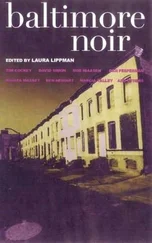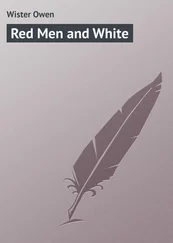Owen Wister - Lady Baltimore
Здесь есть возможность читать онлайн «Owen Wister - Lady Baltimore» весь текст электронной книги совершенно бесплатно (целиком полную версию без сокращений). В некоторых случаях можно слушать аудио, скачать через торрент в формате fb2 и присутствует краткое содержание. Жанр: Вестерн, на английском языке. Описание произведения, (предисловие) а так же отзывы посетителей доступны на портале библиотеки ЛибКат.
- Название:Lady Baltimore
- Автор:
- Жанр:
- Год:неизвестен
- ISBN:нет данных
- Рейтинг книги:5 / 5. Голосов: 1
-
Избранное:Добавить в избранное
- Отзывы:
-
Ваша оценка:
- 100
- 1
- 2
- 3
- 4
- 5
Lady Baltimore: краткое содержание, описание и аннотация
Предлагаем к чтению аннотацию, описание, краткое содержание или предисловие (зависит от того, что написал сам автор книги «Lady Baltimore»). Если вы не нашли необходимую информацию о книге — напишите в комментариях, мы постараемся отыскать её.
Lady Baltimore — читать онлайн бесплатно полную книгу (весь текст) целиком
Ниже представлен текст книги, разбитый по страницам. Система сохранения места последней прочитанной страницы, позволяет с удобством читать онлайн бесплатно книгу «Lady Baltimore», без необходимости каждый раз заново искать на чём Вы остановились. Поставьте закладку, и сможете в любой момент перейти на страницу, на которой закончили чтение.
Интервал:
Закладка:
"Are you educated, yes? Have been to college, yes? Then perhaps you will understand."
Certainly I understood immediately that he and his pamphlets were as bad as the book, or worse, in their use of a vocabulary designed to cause almost any listener the gravest inconvenience. Common Eocene ancestors occurred at the beginning of his lecture; and I believed that if it got no stronger than this, I could at least preserve the appearance of comprehending him; but it got stronger, and at sacro-iliac notch I may say, without using any grossly exaggerated expression, that I became unconscious. At least, all intelligence left me. When it returned, he was saying.—
"But this is only the beginning. Come in here to my crania and jaws."
Evidently he held me hypnotized, for he now hurried me unresisting through a back door into a dark little where he turned up the gas, and I saw shelves as in a museum, to one of which he led me. I suppose that it was curiosity that rendered me thus sheep-like. Upon the shelf were a number of skulls and jaws in admirable condition and graded arrangement, beginning to the left with that flat kind of skull which one associates with gorillas. He resumed his scolding harangue, and for a few brief moments I understood him. Here, told by themselves, was as much of the story of the skulls as we know, from manlike apes through glacial man to the modern senator or railroad president. But my intelligence was destined soon to die away again.
"That is the Caucasian skull: your skull," he said, touching a specimen at the right.
"Interesting," I murmured. "I'm afraid I know nothing about skulls."
"But you shall know someding before you leave," he retorted, wagging his head at me; and this time it was not the book, but a specimen, that he pushed into my grasp. He gave it a name, not as bad as platyrrhine, but I feared worse was coming; then he took it away from me, gave me another skull, and while I obediently held it, pronounced something quite beyond me.
"And what is the translation of that?" he demanded excitedly.
"Tell me," I feebly answered.
He shouted with overweening triumph: "The translation of that is South Carolina nigger. Notice well this so egcellent specimen. Prognathous, megadont, platyrrhine."
"Ha! Platyrrhine!" I saluted the one word I recognized as I drowned.
"You have said it yourself!" was his extraordinary answer;—for what had I said? Almost as if he were going to break into a dance for joy, he took the Caucasian skull and the other two, and set the three together by themselves, away from the rest of the collection. The picture which they thus made spoke more than all the measurements and statistics which he now chattered out upon me, reading from his book as I contemplated the skulls. There was a similarity of shape, a kinship there between the three, which stared you in the face; but in the contours of vaulted skull, the projecting jaws, and the great molar teeth — what was to be seen? Why, in every respect that the African departed from the Caucasian, he departed in the direction of the ape! Here was zoology mutely but eloquently telling us why there had blossomed no Confucius, no Moses, no Napoleon, upon that black stem; why no Iliad, no Parthenon, no Sistine Madonna, had ever risen from that tropic mud.
The collector touched my sleeve. "Have you now learned someding about skulls, my friend? Will you invite those Boston philanthropists to stay home? They will get better results in civilization by giving votes to monkeys than teaching Henry Wadsworth Longfellow to riggers."
Retaliation rose in me. "Haven't you learned to call them negroes?" I remarked. But this was lost upon the Teuton. I was tempted to tell him that I was no philanthropist, and no Bostonian, and that he need not shout so loud, but my more dignified instincts restrained me. I withdrew my sleeve from his touch (it was this act of his, I think, that had most to do with my displeasure), and merely bidding him observe that the enormous price of the kettle-supporter had been reduced for me by his exhibition to a bagatelle, I left the shop of the screaming anatomist — or Afropath, or whatever it may seem most fitting that he should be called.
I bore the kettle-supporter with me, tied up objectionably in newspaper, and knotted with ungainly string; and it was this bundle which prevented my joining the girl behind the counter, and ending by a walk with a young lady the afternoon that had begun by a walk with two old ones. I should have liked to make my confession to her. She was evidently out for the sake of taking the air, and had with her no companion save the big curly white dog; confession would have been very agreeable; but I looked again at my ugly newspaper bundle, and turned in a direction that she was not herself pursuing.
Twice, as I went, I broke into laughter over my interview in the shop, which I fear has lost its comical quality in the relating. To enter a door and come serenely in among dingy mahogany and glass objects, to bargain haughtily for a brass bauble with the shopkeeper, and to have a few exchanged remarks suddenly turn the whole place into a sort of bedlam with a gibbering scientist dashing skulls at me to prove his fixed idea, and myself quite furious — I laughed more than twice; but, by the time I had approached the neighborhood of the carpenter's shop, another side of it had brought reflection to my mind. Here was a foreigner to whom slavery and the Lost Cause were nothing, whose whole association with the South had begun but five years ago; and the race question had brought his feelings to this pitch! He had seen the Kings Port negro with the eyes of the flesh, and not with the eyes of theory, and as a result the reddest rag for him was pale beside a Boston philanthropist!
Nevertheless, I have said already that I am no lover of superlatives, and in doctrine especially is this true. We need not expect a Confucius from the negro, nor yet a Chesterfield; but I am an enemy also of that blind and base hate against him, which conducts nowhere save to the de-civilizing of white and black alike. Who brought him here? Did he invite himself? Then let us make the best of it and teach him, lead him, compel him to live self-respecting, not as statesman, poet, or financier, but by the honorable toil of his hand and sweat of his brow. Because "the door of hope" was once opened too suddenly for him is no reason for slamming it now forever in his face.
Thus mentally I lectured back at the Teuton as I went through the streets of Kings Port; and after a while I turned a corner which took me abruptly, as with one magic step, out of the white man's world into the blackest Congo. Even the well-inhabited quarter of Kings Port (and I had now come within this limited domain) holds narrow lanes and recesses which teem and swarm with negroes. As cracks will run through fine porcelain, so do these black rifts of Africa lurk almost invisible among the gardens and the houses. The picture that these places offered, tropic, squalid, and fecund, often caused me to walk through them and watch the basking population; the intricate, broken wooden galleries, the rickety outside stair cases, the red and yellow splashes of color on the clothes lines, the agglomerate rags that stuffed holes in decaying roofs or hung nakedly on human frames, the small, choked dwellings, bursting open at doors and windows with black, round-eyed babies as an overripe melon bursts with seeds, the children playing marbles in the court, the parents playing cards in the room, the grandparents smoking pipes on the porch, and the great-grandparents stairs gazing out at you like creatures from the Old Testament or the jungle. From the jungle we had stolen them, North and South had stolen them together, long ago, to be slaves, not to be citizens, and now here they were, the fruits of our theft; and for some reason (possibly the Teuton was the reason) that passage from the Book of Exodus came into my head: "For I the Lord thy God am a jealous God, visiting the iniquity of the fathers upon the children."
Читать дальшеИнтервал:
Закладка:
Похожие книги на «Lady Baltimore»
Представляем Вашему вниманию похожие книги на «Lady Baltimore» списком для выбора. Мы отобрали схожую по названию и смыслу литературу в надежде предоставить читателям больше вариантов отыскать новые, интересные, ещё непрочитанные произведения.
Обсуждение, отзывы о книге «Lady Baltimore» и просто собственные мнения читателей. Оставьте ваши комментарии, напишите, что Вы думаете о произведении, его смысле или главных героях. Укажите что конкретно понравилось, а что нет, и почему Вы так считаете.










